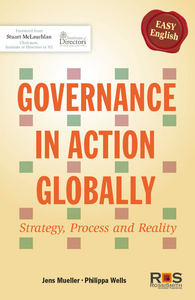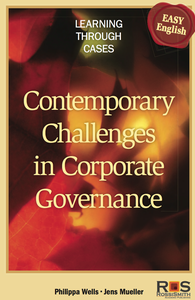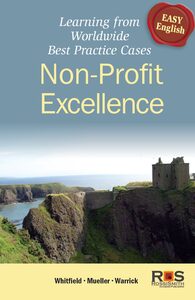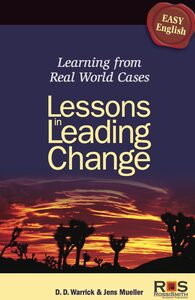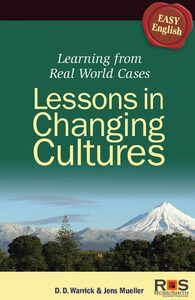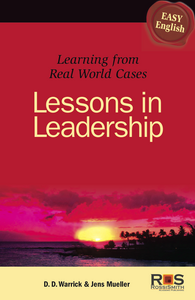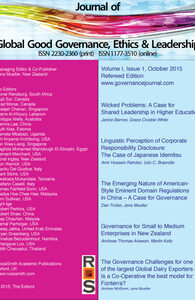We offer several publishing opportunities
We offer publications in the Journal itself, in Special Editions of the Journal, at Conferences we support, in Books and with Special Issues for Emerging Scholars.
All material is double-blind reviewed, with a very low acceptance rate, and there is NEVER any cost for authors to submit, or to have their material reviewed or included. All material is DOI referenced.
We advise authors within 60 days if their material is suitable to be referred to the review process, and we will try our best to then complete the initial review process within 150 days. In return, we expect that authors complete any required revisions within 60 days or less.
Editors decisions on acceptance or rejection are finall, and we only accept original, previously unpublished material that meets our criteria.
PLEASE READ ***ALL*** OF THIS INFORMATION BEFORE CONSIDERING A SUBMISSION
Journal Papers are scholarly contributions of 8-15 pages with robust academic content, and strictly conforming to our formatting requirements. We never charge for submissions or reviews.
Special Editions of our Journal are available on request for specific topic areas, and with an external Editorial Board you can self-select. You provide the content of an acceptable standard, and we handle the publication part. We never charge for Special Editions.
Conference editions of our Journal usually include the best presentations during a conference. You provide the content of an acceptable standard and an external Editorial Board, and we handle the publication part. We never charge for Conference Editions.
We are always interested in material with sufficient substance for a book publication. We publish hardcopy printed and eBook electronic books. You may be interested in being a chapter author, a case contributor or an editor of book material. We never charge to submit book material.
Emerging Scholars
For our Emerging Scholars publications in Journal format, we invite any current Masters/PhD students or recent graduates with fewer than 3 years since degree conferment, to submit a research article that fits with the mission of this Journal. Articles mist be sponsored (that means 'supported') by an academic supervisor.
For this category of Journal publications, we accept papers shorter than in our Journal paper category, but the paper must still meet our Journal requirements of originality and content.
Submissions
All research articles in this Journal will undergo a rigorous peer review, based on an initial screening by editors and then the subsequent double-blind refereeing by multiple reviewers. We do not expect that the average acceptance rate for refereed papers here will rise to more than 12%. There is no cost to authors for submission, review, or for any other activity by the Journal. We include DOI referencing at no cost to authors.
To be considered, a paper will need to conform to these requirements:
1. It provides insight into an important issue – for example, by explaining a wide variance when numbers are spread out from the mean or expected value, or by shedding light on an unsolved problem that affects a lot of people.
2. The insight is useful to people who make decisions, particularly long-term sustainable decisions in our particular field of tourism and hospitality.
3. The insight is used to develop a framework or theory, either a new theory or advancing an existing one.
4. The insight stimulates new, important questions tpo be asked in academic or industry-wide.
5. The methods used to explore the issue are appropriate (for example, data collection and analysis of data).
6. The methods used are applied rigorously and explain why and how the data support the conclusions.
7. Connections to prior work in the field or from other fields are made and serve to make the article's arguments clear.
8. The paper tells a good story, meaning it is well written and easy to understand, the arguments are logical and not internally contradictory.
Manuscripts submitted for publication consideration in this Journal are evaluated according to the following criteria:
1. The degree to which the manuscript fits the mission of the journal.
2. The significance of the theoretical, practical and/or methodological contributions.
3. The quality of the literature review.
4. The articulation and explication of the conceptual rationale, constructs, and applicable processes.
5. The rigor of the design and execution of the study.
6. The appropriateness of the analysis and interpretation of the results.
7. The discussion of implications for theory, research, and application.
8. The clarity of presentation.
Manuscripts should be logically organised and clearly written in concise and unambiguous language. The goal of this Journal is to publish useful information that is accurate and clear.
Two primary types of articles will be published:
1. Feature Articles, which are full-length articles that focus on a theoretically driven empirical contribution (all research strategies and methods, quantitative and qualitative, are considered) or on a theoretical contribution that can shape future research in our field; and
2. Research Reports, which are original in their empirical or theoretical contribution but smaller or narrower in scope than a Feature Article. Research Reports can also be useful (i.e., constructive) replications that contribute to the literature. Research Reports are limited to no more than 17 manuscript pages of text proper; these limits do not include the title page, abstract, references, tables, or figures.
We also accept case studies, crafted in a practical, easy-to-understand style and format, no longer than 6-8 pages and with supporting images about the business(es) discussed.
Authors should refer to recent issues of the journal for approximate length of Feature Articles and Research Reports.
References
List references in alphabetical order. Each listed reference should be cited in text, and each text citation should be listed in the References section.
Examples of basic reference formats:
Journal Article:
Hughes, G., Desantis, A., & Waszak, F. (2013). Mechanisms of intentional binding and sensory attenuation: The role of temporal prediction, temporal control, identity prediction, and motor prediction. Psychological Bulletin, 139, 133–151. http://dx.doi.org/10.1037/a0028566
Authored Book:
Rogers, T. T., & McClelland, J. L. (2004). Semantic cognition: A parallel distributed processing approach. Cambridge, MA: MIT Press.
Chapter in an Edited Book:
Gill, M. J., & Sypher, B. D. (2009). Workplace incivility and organizational trust. In P. Lutgen-Sandvik & B. D. Sypher (Eds.), Destructive organizational communication: Processes, consequences, and constructive ways of organizing (pp. 53–73). New York, NY: Taylor & Francis.
Figures
Graphics files are welcome if supplied as .pdf or EPS files. Multipanel figures (i.e., figures with parts labeled a, b, c, d, etc.) should be assembled into one file. DO NOT SUPPLY GRAPHICS IN TABLE FORMAT BUT ONLY IN FORM OF A COMPLETE IMAGE, including any legends.
Permissions
Authors of accepted papers must obtain and provide to the editor on final acceptance all necessary permissions to reproduce in print and electronic form any copyrighted work, including test materials (or portions thereof), photographs, and other graphic images (including those used as stimuli in experiments).
The Journal may decline to publish any image with unknown copyright status.
Publication Policies
Our policy prohibits an author from submitting the same manuscript for concurrent consideration by two or more publications.
This Journal requires authors to reveal any possible conflict of interest in the conduct and reporting of research (e.g., financial interests in an investigation, funding by a hotel company for hotel-related research, etc.).
In light of changing patterns of scientific knowledge dissemination, this Journal requires authors to provide information on prior dissemination of the data and narrative interpretations of the data/research appearing in the manuscript (e.g., if some or all were presented at a conference or meeting, posted on a listserv, shared on a website, including academic social networks like ResearchGate, etc.). This information (2–4 sentences) must be provided as part of the Author's Note.
Authors of accepted manuscripts automatically transfer a limited exclusive copyright to this Journal, subject to our copyright statement.
Ethical Principle
It is a violation of this Journal's Ethical Principles to publish "as original data, data that have been previously published".
In addition, this Journal's Ethical Principles specify that after research results are published, authors do not withhold the data on which their conclusions are based from other competent professionals who seek to verify any substantive claims, through re-analysis, or who intend to use such data only for that purpose, provided that the confidentiality of the participants can be protected - unless legal rights concerning proprietary data preclude their release.
This Journal expects authors to adhere to these standards. Specifically, we expect authors to have their data available throughout the editorial review process and for at least 5 years after the date of publication.
Authors are required to state in writing that they have complied with this Journal's ethical standards in their treatment of their sample, human or animal, or to detail the details of treatment.
Appeals Process for Manuscript Submissions
If your material has been rejected at any stage of the review process, and if you believe a pertinent point was overlooked or misunderstood by the reviewers, you may appeal the rejection by contacting the Editor.
If you appeal to the Editor and are not satisfied with the response, the next step in this Journal's editorial appeals process, is to contact the Managing Editor, who must respond within 20 working days.
If a satisfactory resolution is still not achieved, and you still believe that key factors have not been properly considered in the review, you may appeal to the Submissions Acceptance Board, which will decide with finality within 45 working days.

